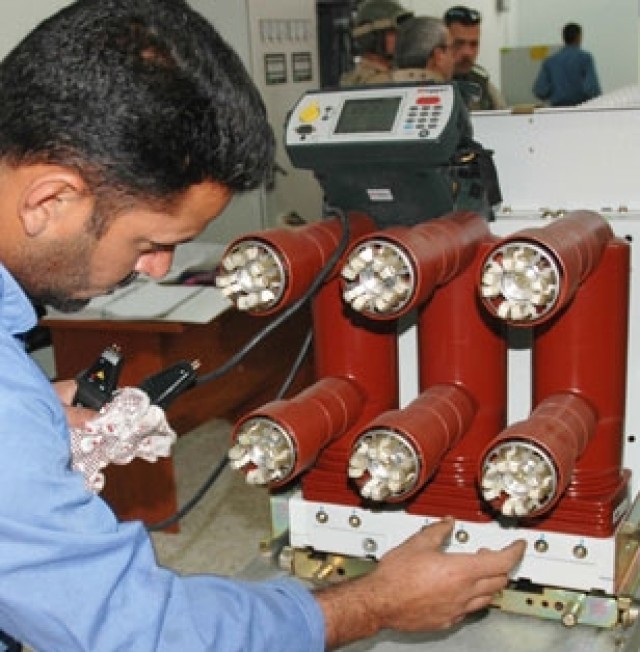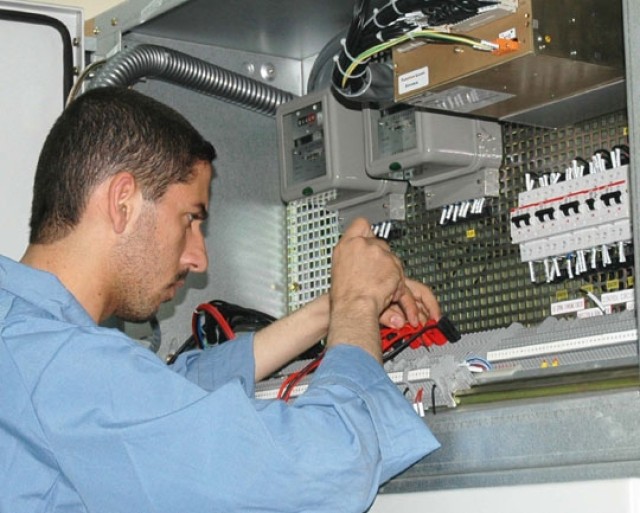FALLUJAH, Iraq, May 1, 2007 - Fallujah is rebuilding its electrical distribution network, and so far more than 45,000 utility poles, 2,200 transformers and 2,400 kilometers of cable have been purchased.
Fallujah city officials and Ministry of Electricity personnel are working with the U.S. Army Corps of Engineers (USACE) on the $57 million project.
"One of the city's two existing 33kV substations is being rebuilt and two brand new 33kV substations added to ensure Fallujah has a reliable, stable system," said Chip Nieman, the deputy resident engineer for USACE's Fallujah office. The work also includes rehabilitating a 132kV substation replacing two of the three transformers.
Neighborhood distribution networks - many with broken poles, snapped lines, damaged transformers - are being replacedone area at a time with Ministry of Electricity personnel getting that accomplished. The corps is also hiring additional crews to help.
"The city's old dilapidated system just didn't have the capacity to meet the community's needs," Nieman explained. "It's great to see real progress taking shape."
Meanwhile, Fallujah's Electrical Department is getting a new $2.8 million maintenance facility that will include two warehouses, a workshop, and an administrative office.
"We're interacting with Fallujah officials on a daily basis. Their head of the electricity department, engineer Isam Kareem Hamadi, has been great to work with. He appreciates our efforts," said Nieman.
In all, Neiman's office is overseeing 87 projects in Fallujah and the surrounding area including health-care clinics, sewage lines and pump stations, street lighting, and potable water treatment facilities.
"Fallujah is a great place to work. It's a fast-paced, challenging environment and also rewarding, you get to see how your efforts are helping people," said Nieman who is nearing the end of a yearlong assignment in Iraq. "I believe in what we're doing or I wouldn't be here."
Nieman said that hiring residents is a priority. Fallujah, a city of 200,000 residents, has about 40,000 homes and businesses. "It's a tremendous benefit to Fallujah's economy," he said.




Social Sharing